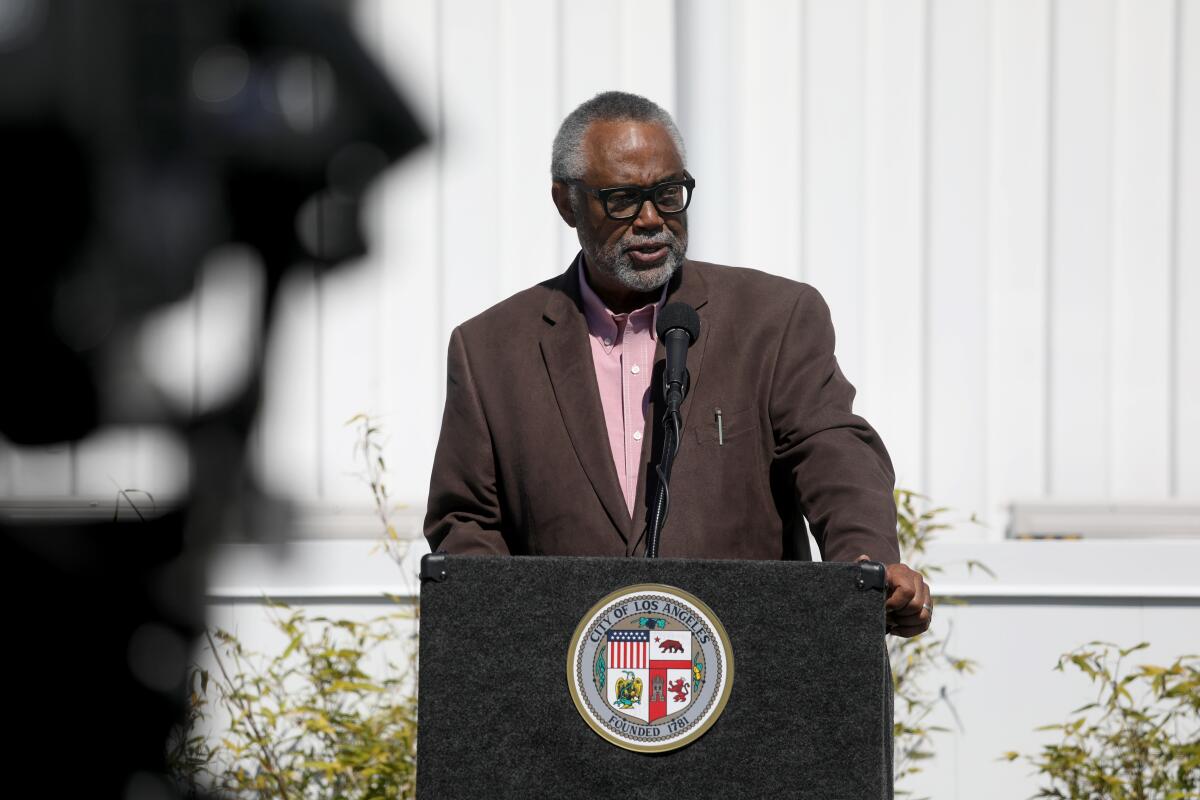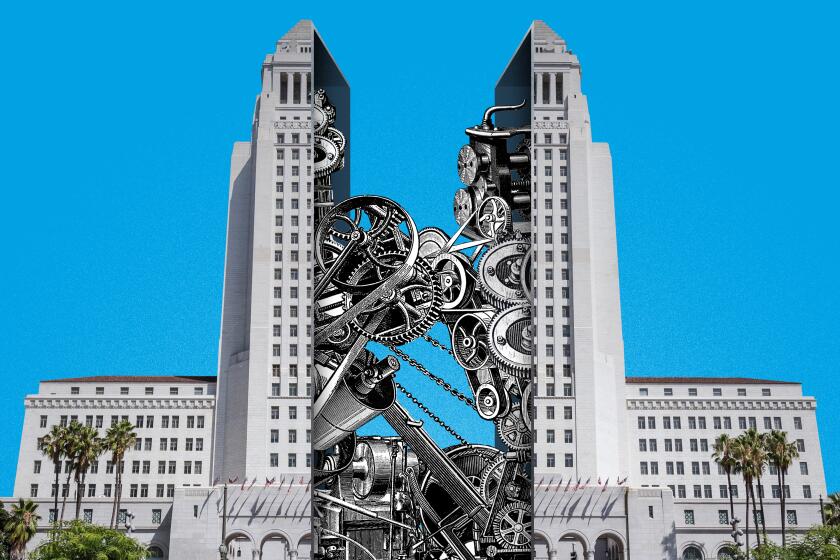Editorial: To fix City Hall corruption, L.A. needs a stronger Ethics Commission

- Share via
The scandals don’t stop at Los Angeles City Hall. With a fourth council member — Curren Price — charged with corruption in about three years, there should be some soul searching inside the halls of power. How did so many leaders go astray, and how can L.A. clean up its rotten political culture?
One obvious and overdue fix is actually pretty easy: Ask voters to strengthen the Ethics Commission, which is the watchdog over the city’s elected officials, candidates for office, political appointees and lobbyists.
When the commission was created by voters in 1990, it was considered one of the most ambitious ethics reforms in the nation. But three decades of oversight and enforcement have revealed the commission doesn’t have the independence and authority to be the watchdog that Angelenos need or expect.
Los Angeles City Hall has been rocked by scandal after scandal, but now there’s momentum to reform city government.
The City Council and mayor decide how much to fund the commission, which determines the size of its staff of investigators and enforcers, and whether to enact recommended changes in ethics laws. This means the regulator needs permission from the people who are regulated to do its work. Of course this arrangement is an obstacle to oversight and enforcement.
For example, the Ethics Commission has been trying for 15 years to pass commonsense revisions to the city’s lobbying law to make paid advocacy more transparent and the rules easier to enforce. The City Council repeatedly refused to consider the proposals and they died. In 2018, a former Ethics Commission staffer filed a whistleblower complaint after being told by commission management that a council member had threatened to cut the department’s budget if it didn’t soften rules on gifts for politicians, according to a Times story.
Last year, the Ethics Commission recommended a dozen changes to the City Charter that would give the commission more power and independence. But those proposals have been on the back burner while the City Council’s ad hoc committee on city governance reform focuses on creating an independent redistricting commission and deciding whether to expand the City Council.
It shouldn’t take a scandal to get Los Angeles’ political leaders to embrace basic ethics reforms — like requiring lobbyists to say they are lobbyists at public meetings.
But ethics reforms got a boost last week — and not just because of the criminal charges filed against Price. A group of political science scholars released their recommendations for governance reform in Los Angeles, and they put a priority on empowering the Ethics Commission. Their rationale makes sense: If Angelenos are going to be asked to expand the City Council and create more politicians, they need to know they’re going to get the cleanest possible city government in return.
Specifically, the L.A. Governance Reform Project recommended changing the City Charter to require that the City Council finally act on the commission’s proposed regulations and allow the commission to bypass the City Council and put proposed policies on the ballot for voters to decide. Those are smart changes.
Any reform ballot measure should also guarantee a minimum budget for the commission, so politicians can’t cut its funding to pressure ethics staff. It’s also worth exploring having a larger commission with some nonpolitical appointees, who are not beholden to elected officials. L.A.’s commissioners are selected by the city’s elected leaders. In Long Beach, the seven-member Ethics Commission includes four commissioners appointed by elected officials, and those four commissioners pick the other three.
Could these changes prevent more corruption scandals? They could help. An empowered commission could potentially respond more quickly to ethical issues as they arise, without having to pass the gantlet of council skepticism or obstructionism.
Give credit to political reformers: They’re not about to let a good crisis in City Hall go to waste.
Among the allegations against Price, for example, is that he voted on projects developed by companies that employed his wife, which creates a conflict of interest. Price recused himself in some instances involving his wife’s business, but not others, according to Times reporting in 2019.
City law requires that appointed commissioners file paperwork when they have a conflict of interest and recuse themselves from voting. Those recusals are tracked and commissioners’ conflicts of interest are reviewed when they recuse themselves three times in a year. Elected officials, however, aren’t required to follow the same reporting rules and only have to give a verbal declaration when they decide to recuse themselves. That makes it harder for the public to track and understand elected officials’ conflicts of interest. If unpaid volunteer commissioners have to document their recusals, why shouldn’t council members do the same? That’s something an empowered commission could consider.
The parade of scandals has created momentum for major changes in L.A. city government. But the work will not be complete without ethics reform as well.
More to Read
A cure for the common opinion
Get thought-provoking perspectives with our weekly newsletter.
You may occasionally receive promotional content from the Los Angeles Times.













